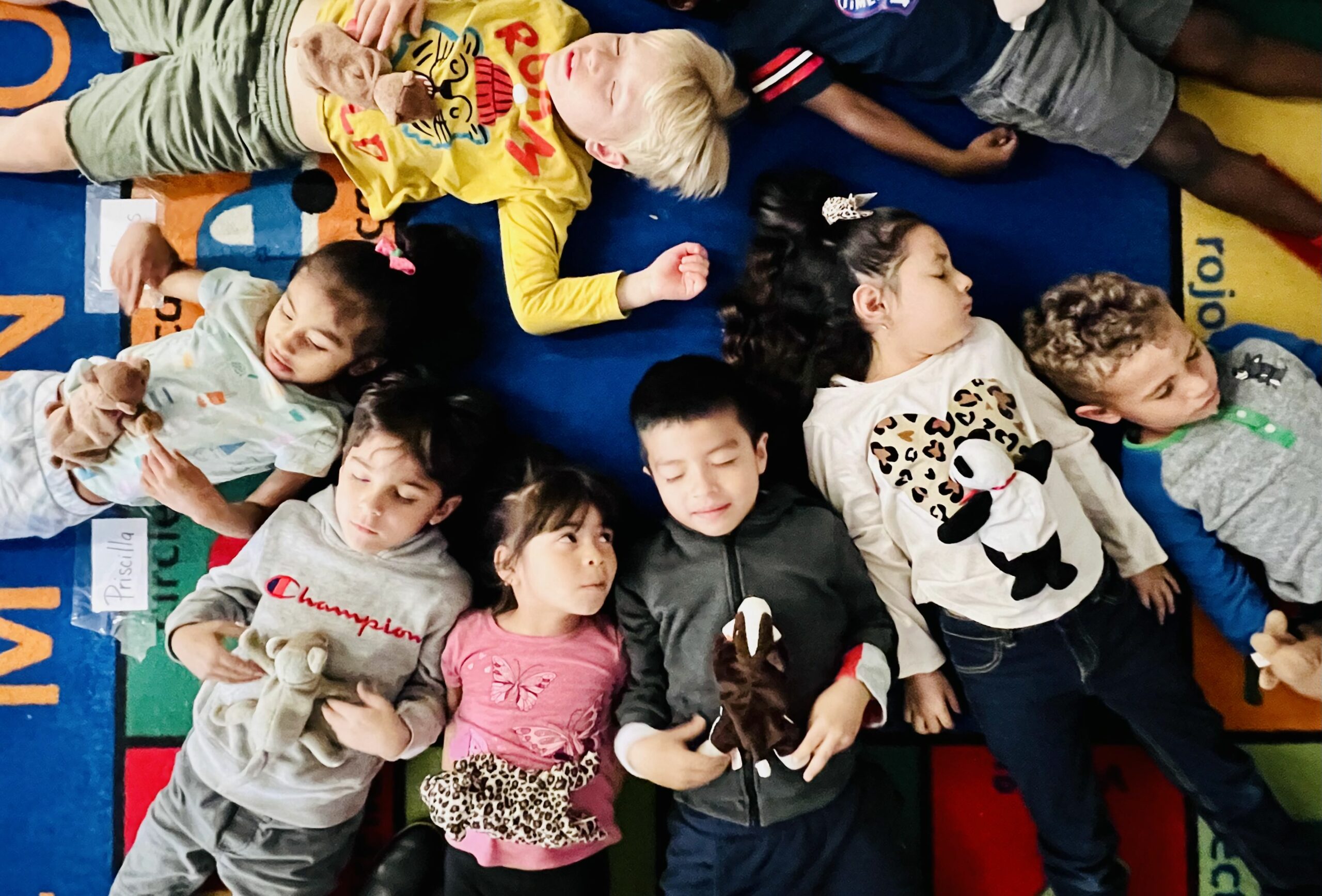Amala’s early childhood education program is centered around mindfulness techniques, coping strategies, and grounding exercises. By introducing these foundational skills at a young age, students can achieve greater emotional regulation, leading to a more positive home and school environment. Research has shown that mindfulness interventions can reduce stress, anxiety, and reactivity, improve sleep & self-esteem, and bring about a greater calmness and self-awareness. Our program aims to promote the holistic development of children by emphasizing age-appropriate social and emotional skills that build empathy and connection. Investing in early interventions like Amala’s Early Childhood Education programs can significantly decrease the prevalence of long-term mental health issues in children, according to research from the National Library of Medicine. We believe that by teaching mindfulness and self-awareness, children can better navigate their emotions and the world around them.
At Amala, we recognize the unique pace at which each child learns and provide individualized attention to ensure that every student receives the proper support. Additionally, we encourage parental involvement in their child’s education by offering resources and tools to use at home. By working together, we can foster a community that values the importance of early childhood education and its impact on the future of our children. Our commitment to creating a safe and supportive environment allows our students to develop into confident, resilient individuals. We believe that by instilling mindfulness and coping strategies early on, we are setting our students up for success in all aspects of their lives.
Contact us at info@amalafoundation.org for more program information.
Source: Weare, K. (April 2012). Evidence for the Impact of Mindfulness on Children and Young People. Mindfulness in Schools Project, in association with Mood Disorders Centre. Retrieved from https://mindfulnessinschools.org/wp-content/uploads/2013/02/MiSP-Research-Summary-2012.pdf

